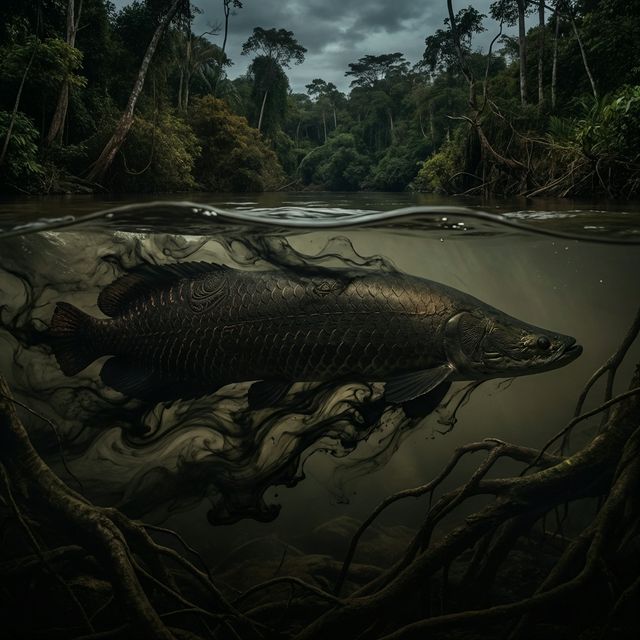I'm Luiz Fernando Toledo,
Brazilian journalist, researcher and instructor based in London, with a proven track record of producing and managing impactful projects related to Brazil.
My reporting has been translated into various languages, reaching thousands of readers in Brazil and abroad.
The first video is a BBC podcast interview presenting an investigation into fake alcohol sellers on social media. If the video doesn't load, watch it on YouTube.
Reporting Impact
Stories I wrote sparked a federal investigation into Jeffrey Epstein's sexual enticement network in Brazil, exposed a former president's misuse of public funds, uncovered a bid fraud that saved R$ 15 million from a city's budget and enabled the shutdown of companies involved in illegal activities.
Training
Attended world-class conferences as instructor in Brazil, USA, UK, Portugal, Malaysia, Sweden and others. Trained over 2,000 journalists through online and in-person workshops.
Research
Masters degrees in Data Journalism (Columbia) and Public Administration (FGV‑EAESP). Research-assistant at POLIS‑Cambridge (2024–2026). Former research fellow at Oxford (2021), Columbia (2022–2023) and NED (2023–2024). My research was used by the government to improve transparency policies.
Civil Tech
Over the last three years, I have used generative AI in journalism for data analysis, fact-checking, and investigations. In 2025, I built a tool that helps reporters search millions of Brazilian public records. In 2026, I launched five public Civil Tech dashboards: one on environmental fines in Brazil (daily updates, search, maps, and exports), and another on public records requests (LAI/FOIA-style) (monthly updates, denial trends, and an AI assistant to help people understand denials and write better appeals), plus a daily emendas monitor that tracks how much was newly committed each day, by author and destination, a Chamber basometro on government-vs-Congress voting alignment, and a searchable presidential speech tracker (Lulometro) comparing interviews and speeches across presidents and mandates.
Investigative Reporting

The Epstein-Brazil connection
I analyzed all the millions of Epstein files released by the US government and built scrapers that searched for keywords related to Brazilian figures. This way, we were able to reveal the financial dependency of Brazilian models on the billionaire, connections used to lure young women, and the victims who were taken to the US. The BBC series led to a Federal Prosecution investigation in Brazil seeking a network that lured women.

Sexual abuse in Brazil's military schools
Our investigation reveals that at least nine girls aged 11 to 13 reported inappropriate touching by a military monitor in a public school, raising broader questions about oversight and the civic-military model.

How fake bottle caps and seals fuel Brazil's counterfeit alcohol market
This investigation dismantled a network of over 10,000 people selling bottle parts for beverage counterfeiting and triggered a police investigation.

Giant Amazon fish turned into luxury handbags – but who profits?
The thick, patterned skin of the once-at-risk pirarucu fish is in demand for high-end fashion, but the fishermen want more money.

Secret Budget Amendment Linked to Slave Labor
Investigation reveals how a budget amendment supported by Chamber President Hugo Motta funded construction using stones produced by workers in slave‑like conditions.

Brazilians Face Abuse in Irish Meat Industry
Exclusive investigation exposes precarious working conditions and abuse faced by Brazilian workers in Ireland’s meat processing industry.

Failed enforcement: indigenous objects containing animal parts are freely sold online
A 2‑month investigation into animal feather smuggling and how companies benefit from exploiting indigenous communities in Brazil.

Political Backing Fuels Land Grabbing in Brazil's Distrito Federal
In the Distrito Federal, Brazil, a significant issue of land grabbing in conservation areas is emerging, intensified by political support. These activities are particularly rampant in the Colônia Agrícola 26 de Setembro, a settlement approximately 26 km from the Palácio do Planalto, housing around 35,000 residents.

A world heritage site under attack in Brazil
Brazilwood is being driven to extinction by an industry not often associated with organized crime: classical music. Tests on a sample of the confiscated wood show it was logged in a protected forest.
Video reporting
Short-form video reporting for social media
Interviews
Bellingcat's Stage Talks
I was interviewed by Bellingcat to discuss how to use public records and data to investigate environmental crimes in Brazil. Held in English.
Global Investigative Journalism Conference (GIJC)
Panel discussion on investigating environmental crimes at GIJC 2023 in Gothenburg, Sweden.
SBT News
Discussion about transparency and investigative journalism in Brazil.
TV Globo/G1 Podcast (O Assunto)
Podcast discussion about corporate expenses investigation.
FIL Lisbon Conference
Presentation about DataFixers.org at the Lisbon International Fair.
CNN Brasil
Interview about air charter investigation and transparency in government spending.
Awards and Honorable Mentions
- 2024🏆 WinnerPrêmio Gabo 2024 – coverage with InfoAmazonia and Datafixers.orgFundación Gabo
- 2024ShortlistSigma AwardsSigma Awards
- 2023🏆 WinnerPrêmio Claudio Weber Abramo – Categoria Dados AbertosEscola de Dados/Open Knowledge Brasil
- 2023🏆 WinnerPrêmio Claudio Weber Abramo – Categoria InvestigaçãoEscola de Dados/Open Knowledge Brasil
- 2023ShortlistPremio Roche 2023Premio Roche
- 2022🏆 WinnerPrêmio Transparência e Fiscalização Pública – Câmara dos Deputados (with Fiquem Sabendo)Câmara dos Deputados
- 2022ShortlistPrêmio Claudio Weber Abramo 2022 – Má alimentação à BrasileiraEscola de Dados/Open Knowledge Brasil
- 2022ShortlistSigma Awards 2022 – Open LuxSigma Awards
- 2022ShortlistSigma Awards 2022 – Personal portfolioSigma Awards
- 2022ShortlistSigma Awards 2022 – Revealing the Brazilian military pensionSigma Awards
- 2021ShortlistIREE 2021IREE
- 2021ShortlistSigma Awards 2021 – Shedding light on government pensionSigma Awards
- 2021ShortlistSigma Awards 2021 – Chloroquine and the Brazilian ArmySigma Awards
- 2021🏆 WinnerJornalismo Mosca 2021 – SolteiragateJornalismo Mosca
- 2021ShortlistPrêmio Claudio Weber Abramo 2021 – SolteiragateTransparência Brasil
- 2019ShortlistSigma Awards 2019 – Personal portfolioSigma Awards
- 2019🏆 WinnerPrêmio Claudio Weber Abramo 2019 – Newsletter Don’t “LAI” to meTransparência Brasil
- 2018🏆 WinnerPrêmio Estado de Jornalismo 2018 (Categoria Reportagem, 2nd place) – A rede bolsonarista de desinformaçãoEstado de São Paulo
- 2018ShortlistPremio ANPR 2018 – Fraude em cotas raciaisANPR
- 2018🏆 WinnerPrêmio Estado de Jornalismo 2018 (Categoria Serviço) – Estadão VerificaEstado de São Paulo
- 2017🏆 WinnerPrêmio Estado de Jornalismo 2017 (Categoria Reportagem, 2nd place) – Fraude em transparência em SPEstado de São Paulo
- 2017🏆 WinnerPrêmio Estado de Jornalismo 2017 (Categoria Reportagem, 3rd place) – Internações psiquiátricas (série)Estado de São Paulo
- 2017🏆 WinnerPremio ANPR 2017 – Denunciando uma rede de pornografia infantilANPR
- 2016🏆 WinnerPremio Allianz Ayrton Senna 2016 – O fechamento de escolas em SP
 Instituto Ayrton Senna
Instituto Ayrton Senna
- 2011🏆 WinnerPremio ASU/Schaeffer 2011 – A história da mulher que adotou seis criançasASU/Schaeffer
Scholarships, Fellowships and Grants
- 2024Together for Conservation (EJN, 2024)Earth Journalism Network
- 2023–2024National Endowment for Democracy (NED) – Reagan‑Fascell fellowship (2023–2024)NED
- 2022Person of the Year 2022 – Brazilian American Chamber of CommerceBrazilian American Chamber of Commerce
- 2021–2022Columbia Journalism School (US$ 91,500 in tuition) 2021/2022Columbia University
- 2020ICFJ Latin America Grantee 2020 – FOIA – Brazil and US projectICFJ
- 2019EAESP‑FGV – Full scholarship for a master of science in Public Administration (2019)FGV
- 2019Instituto Ling’s Visionary Journalist US$
60,000 scholarship (2019) – Jornalista de Visão
 Instituto Ling
Instituto Ling
- 2018ICFJ Emerging Leaders Program / fellow 2018ICFJ
Online Workshop
Investigate public spending with the Brazilian freedom of information act
4.6/5 · 428 students · 1.5 hours of video
Two powerful tools allow anyone today to search for information about public spending and those responsible for deciding how these resources are used: transparency portals and freedom of information laws.
These tools allow anyone to check public servants' salaries, ministry budgets, monitor the progress of policies, and much more. They also allow any person to send questions — with a legally guaranteed response — to any Brazilian government body.
This workshop is an introduction to the topic and is dedicated especially to professionals and students who need public data and documents, whether for university research, office work, or even everyday needs like learning more about how a local health clinic or public school operates.